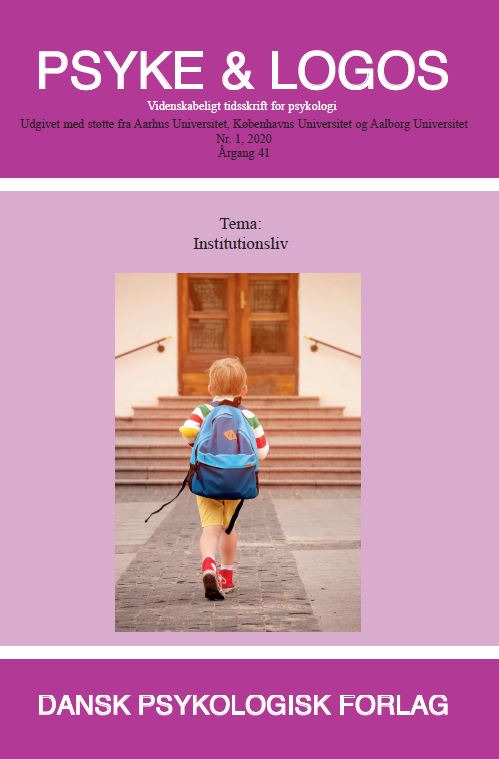’It makes me feel at home’
About young people leaving home, and how they develop a sense of belonging
DOI:
https://doi.org/10.7146/pl.v41i1.121510Keywords:
belonging, transition, leaving home, young peopleAbstract
Youth is a life phase characterised by many transitions. Leaving home is one of the most crucial transitions in youth. Based on the concept of belonging, this article examines how young people develop a sense of belonging to the place they are moving to when leaving home. The article examines the ways in which young people are constructing a sense of belonging to a place through different social and material resources. The point of departure for the article is that belonging to a place is a performative act. The article is based on a longitudinal interview study with 36 Danish young people between the age of 17 and 25, whom the authors have followed for 12 months during their transition from living with their parents to living on their own. In the interviews, it is examined which challenges young people encounter in this transition, and which strategies they apply to meet these challenges. The article shows how young people through their affective and ambiguous interactions with places, materialities and social relations produce a sense of belonging to the place they are moving to. In particular, it focuses on how young people’s sense of belonging to the childhood home affect the ways in which they actively create a relationship with a new place. The article nuances the notion of belonging by showing how young people’s ways of connecting with a new place can be considered a performative act, which is largely connected to the experiences of attachment, or lack of attachment to the childhood home which they carry with them into adulthood.
Downloads
Published
How to Cite
Issue
Section
License
Ophavsret er tidsskriftets og forfatternes. Det er gældende praksis, at artikler publiceret i Psyke & Logos, som efterfølgende oversættes til andet sprog, af forfatteren frit kan publiceres i internationale tidsskrifter, dog således at det ved reference fremgår, at den oversatte artikel har et forlæg i en dansksproget version i Psyke & Logos. Artikler kan frit deles og linkes til på forsknings- og undervisningsnetværk (så som Blackboard). Link foretrækkes, fordi det giver oplysning om brug af tidsskriftets artikler.




